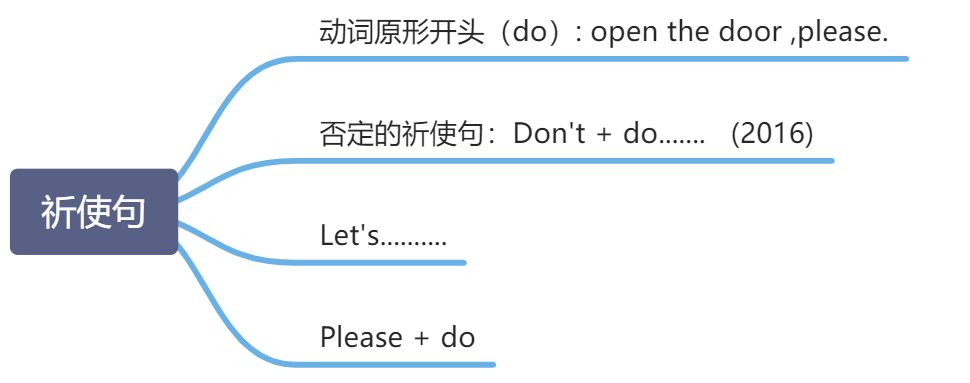谓语构成
一般将来时态和一般过去时态的比较:
| 一般将来时态 | 一般过去时 |
|---|---|
| tomorrow(明天) | yesterday(昨天) |
| the day after tomorrow(后天) | the day before yesterday(前天) |
| next(下次) | last(上次) |
| in the future(在未来) | in the past(在过去) |
【例题】 :::info 1.He __from Harvard University next year.
A.graduates B.graduated C.is graduating D.will graduate
Harvard 哈佛大学
graduate v.获得学位,毕业
graduate from 从…..大学毕业After graduation. 毕业之后.
明年,他将会从哈佛大学毕业。分析next year 过去的时间 明年,使用将来时态,will graduate(will + do) University 大学,往往指综合性的大学
college 大学,往往指专门型大学(专科)
:::
:::info 2.He _in his garden every morning next year.
A.will work B.works C.worked D.is working
garden 花园
分析大的时间next year (明年),小的时间every morning忽略,next year为过去的时间 明年,使用将来时态,will do 及 will work当题目没有next year,时用 有 小的时间用 worked :::
:::info ⭐ 3.There ___a party tonight.
A.will do B.is going to be C.is going to have D.was going to be
分析时间状语tonight(今晚) 去除 ~~D ~~.was going to be 过去将来时 ,ABC看着都是一般将来时 A.will do B. am\is\are + going to do C.am\is \are +to do
看题干 There be 结构(必须要用be动词)A排除
B,C 都含有be going to ,都去掉之后,剩下be和have 而去掉之后be还是能形成there be句型而have 不能所以为B选项
:::
考点: :::success 一般将来态的一些特殊的时间状语
this + 时间、tonight 要用一般将来时
this weekend.这个周末
:::
:::info 4.They __a basketball match next Sunday.
A.watch B.will watch C.watched D.are watching
分析 next Sunday 将来的时间用一般将来时,will + do 为will watch.
watch n.手表 V.看(带有观赏性的看,比赛,电影等) :::
:::info The teacher tells me that my written assignment_next Monday.
A.is going to hand in B.is to be handed in C.will be handed D.is handing in
assignment 分配
handed in 上交
written assignment 书面作业
分析 时间状语 next Monday.下周一 ,表将来,用将来时 hand in 上交固定搭配,没有hand in 排除
A. is going to (be going to) hand in 一般将来时
B.is to be (be to do) handed in而is to be handed in(be done)be handed. 表被动 被动将来时 一般将来时
D. is handing (be doing 现在分词,仅限位移动词) in.
主语 作业 和 上交 存在被动关系 用被动式 be done 将来被动语态
:::
(二)、位移动词 (现在表示将来)
:::success 位移动词:come (来)\ go (去)\ leave(离开) \ arrive(到达) \ fly (飞行) \ return (回来,归还)
位移动词可以用现在进行时 (am\is \are +doing), 表达一般将来时. :::
:::info I want to know when he_for New York tomorrow.
A.has left B.is leaving C. had left D.has been leaving
分析题内唯一的时间状语tomorrow(明天),一般将来时态,will + do,但是选项内没有will + do,
::: :::info B.be doing 现在进行时态的一种表示。位移动词可以用现在进行时表达一般将来时。 :::
(三)、祈使句+and / or 后句谓语用一般将来时态⭐⭐⭐⭐
祈使句+and / or 后句谓语用一般将来时态
考点1①祈使句的辨认(不需要翻译就能做出来)
考点2②and / or 的选择(需要翻译句子)
:::success
and (那么):顺接关系
or (否则):转折关系
:::
考点3③后句一定使用 will +do(不需要翻译句子)
:::info 1.Let’s keep to the point or we __will never reach**___any decision.
A.will never reach B.have never reached C.never reach D.never reached
分析祈使句(Let’s开头)+an/or +后谓语用 will never reach(will do一般将来时态)
祈使句Let’s 开头,加上连词or第三个考点,不需要翻译句子后句的时态是固定的后面直接 will + do :::
:::info 2.Go_straight on and you’ll see a church .You won’t miss it.
A.Go B.Going C.If you go D.When going
继续往前走你将会看的一个教堂,你不会错过它。【不需翻译】
分析考点1祈使句的辨认 _缺+ and + you’ll(谓语将来时态 will do) see ,知缺少祈使句开头
祈使句分为四种:①动词原形开头 do+…… ②否定祈使句开头 Don’t do…… ③Let’s……开头 ④Please + do开头
分析四个选项知,A为动词原形开头 go :::
:::info 3.Stand over there _andyou’ll be able to see it better.
A.or B.while C.but D.and
翻译:站在那里_你将会看的更好.
分析祈使句 (Stand 动词原形do)+ 连词 +will do (一般将来时态 will do) ,缺少并列连词and/or and表示顺接 or表示转折 【需翻译】
本题没有转折的含义,所以表顺接关系的and :::
:::info 4.Start out right away,_oryou’ll miss the first train.
A.and B.but C.or D.while
right away 马上
翻译:马上启程,否则_你将会错过第一班列车
分析 Start (动词原形do)+and\ or_+will miss (一般将来时态 will do) 【需翻译】
根据句意,并列连词表转折,用or
:::
:::info 5.Turn on the television or open a magazine and you will seeadvertisements showing happy families.
A.will see B.see C.are seeing D.have seen
分析Turn (do) + and +固定的动词原形 will do (不需翻译) :::
:::info 6.【2016 - 35】Don’t associate with bad boys_oryour whole life will be ruined.
A.or B.but C.and D.so that
associate with v. 联合;与…联系在一起;和…来往
ruined v. 毁灭(ruin 的过去式及过去分词;不可修复性的,表示长时间的毁掉)
destroy vt. 破坏;消灭;毁坏 (不可修复性的,短时间的毁坏)
不要和坏孩子联系在一起否则你将会毁了你的整个人生。
分析【需翻译】 Don’t associate (否定祈使句) +and\or(并列连词) +will be (一般将来时)
根据题意表转折or。
:::



